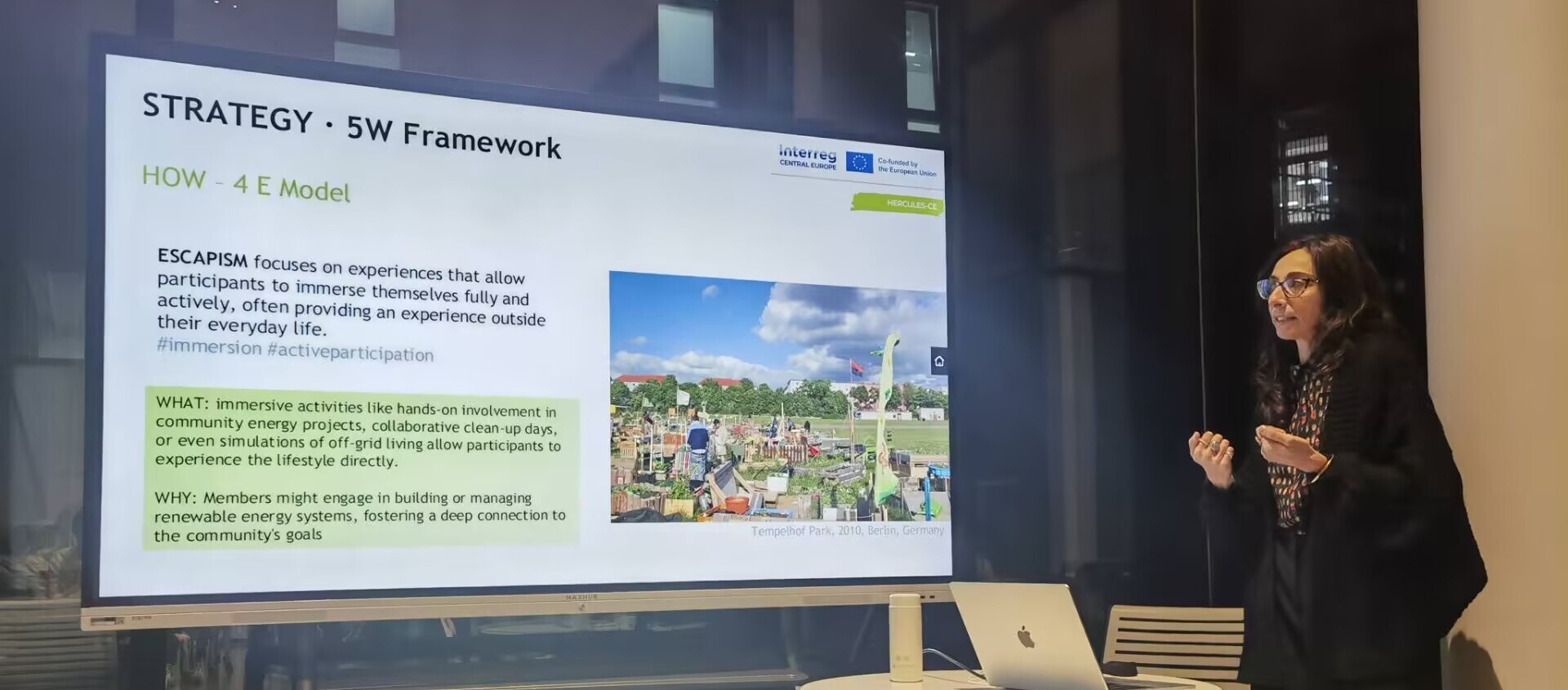Contribution of Politecnico di Milano on participatory approach of HERCULES-CE project
The urgency of the energy transition is a defining challenge of our time, and it can only succeed if everyone gets behind it. In this context, Renewable Energy Communities (RECs) are becoming key drivers of change, enhancing both the environmental and social landscape of Central Europe. During the talk series “Innovation Futures”, organized by the XJTU-Polimi Joint School of Design and Innovation at Xi’an JiaoTong University in China, Dr. Carla Sedini, researcher at Politecnico di Milano, explored how collective design processes can empower citizens and local stakeholders to drive sustainable change. In her talk titled “Collectively Designing Social Worlds: Renewable Energy Communities in Central Europe”, she invited attendees to reflect on how collaborative design empowers communities to actively shape their energy futures and encourage a collective sense of allegiance and responsibility.
A central part of her presentation was the innovative engagement model of the HERCULES-CE project. At the heart of this model is the principle of participatory design, which places local communities and stakeholders at the heart of the energy transition. By fostering collaboration, building trust and ensuring inclusion, this approach applied by RECs is ideally suited to meet individual local needs and enhance social cohesion and resilience. By combining renewable energy targets with strong and fair communities, RECs have the potential to become a channel for sustainable development.
